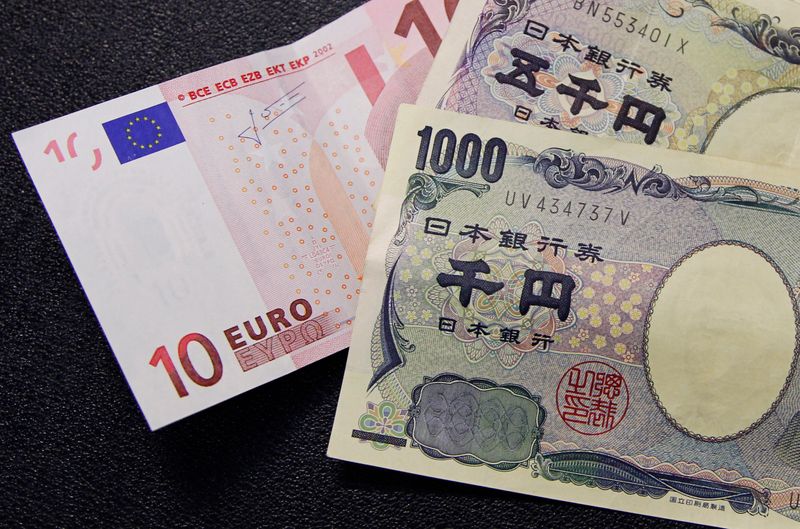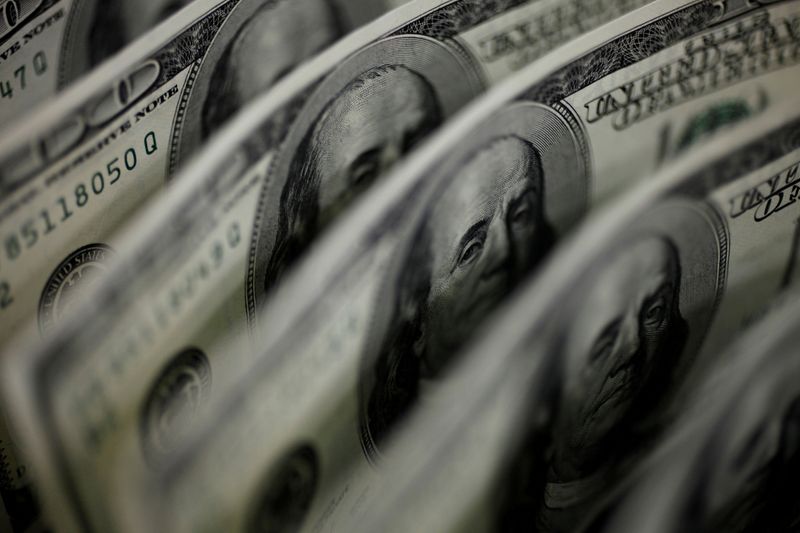By Saikat Chatterjee
LONDON (Reuters) - The euro languished below $1.18 on Monday as the prospect of tougher coronavirus curbs in France and Germany weighed on the short-term outlook for the European economy.
The euro slipped 0.2% in London trading at $1.1774, nearing last week's four-and-a-half-month trough of $1.1762. On a monthly basis, it is down 2.3%, its biggest drop since July 2019.
Compounding the single's currency woes have been the widening interest rate differentials between German and U.S. yields. The spread for 10-year debt widened to 200 basis points from 150 bps at the start of the year, boosting the dollar.
"In a nutshell, the U.S. economy is much stronger and miles ahead in the immunization game compared to Europe's and Japan's, and this ultimately translates into the Fed normalizing policy years before the ECB or the BoJ," said Marios Hadjikyriacos, a strategist at brokerage XM.
The euro's woes have worsened as Europe's faltering vaccination programme runs into a wave of new infections, even as positioning data showed investors remain heavily long euros, a bearish sign for investors. and
"Much focus will remain on the virus situation in Europe and whether lockdowns can slow rising case numbers and also whether the slow pace of vaccinations can finally reach exit speed," ING economists said in a daily note.
The dollar held firm against other currencies as a slight risk-off sentiment rippled through global markets, with U.S. stock futures in negative territory in quiet quarter-end rebalancing flows.
YEN SHORTS GROW
Against a basket of currencies, the dollar steadied at 92.810, just below a November 2020 high of 92.92 hit last week.
Weekly positioning data showed the broad trend of growing dollar bullishness remained in play. Hedge funds cut their overall short dollar bets to their lowest levels since June 2020 while ramping up their bearish bets on the yen.
Short yen positions have grown in recent weeks with hedge funds building their net short bets to 33% of open interest, according to ING data.
Steadying stock markets offered some support for the yen, but falling bond yields and expectations of a global economic rebound have rekindled short bets. The yen is among the worst- performing currencies so far this quarter, down 6% loss the dollar.
Virus-driven caution also helped the dollar higher against the Australian and New Zealand dollars and sterling, and it rose against oil-linked currencies as the re-floating of the ship blocking the Suez Canal pushed crude prices down by about 1.5%.
The Aussie was last down 0.3% at $0.7621 on Monday and the New Zealand dollar had dropped 0.3% to $0.6978. Sterling slipped 0.2% to $1.3767.
Graphic: Yen positions https://fingfx.thomsonreuters.com/gfx/mkt/qzjvqllkapx/Yen%20positions.JPG

